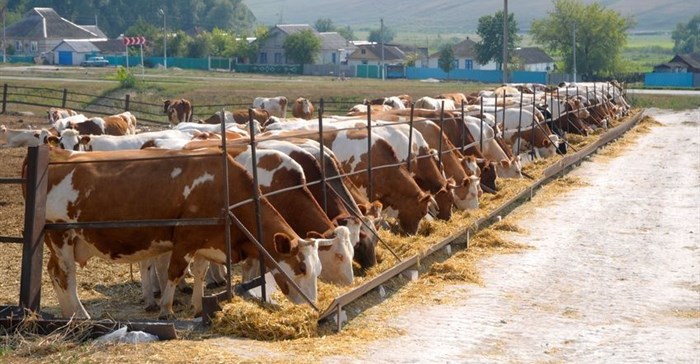
Top stories





Marketing & MediaWarner Bros. was “nice to have” but not at any price, says Netflix
Karabo Ledwaba 2 days

More news

Logistics & Transport
Maersk reroutes sailings around Africa amid Red Sea constraints

















The rest of the year looks set to continue to be challenging. The Crop Estimates Committee’s (CEC) forecast for 2019 maize crops sits at 10.5 million tonnes, which is 16% less than 2017/2018’s harvest production. In addition, the Agbiz/IDC Agribusiness Confidence Index, released in March 2019, shows that agricultural producers are still downbeat about business conditions. Add to this the fact that consumers are under financial strain due to increased fuel prices, higher electricity costs and more pressure on their bottom-line, and the question arises whether the local market is able to absorb the excess beef in production.
In the face of this, what does it mean for cattle farmers in the long-term and how can they maintain their resolve?
Exported beef comprises 4% of local beef production and supplies 42 countries globally. Frozen and fresh meat exports added a positive trade balance of R203m between 2012 and 2016. In addition, South Africa ranked 16thglobally for top red meat exports, with the Ukraine coming in 15th position, and Brazil in the number one position.
To continue to be a global player, it is critical that our beef industry remains competitive, and agricultural export opportunities are met.
In line with this, it is encouraging that select Middle Eastern countries have now opened trade to South Africa owing to government reinstating veterinary certificates for beef with these countries, following the outbreak of FMD earlier this year. This is good news for local beef producers as the re-established beef trade will maintain local beef prices.
However, while good progress has been made, more needs to be done to ensure that the trade volumes from beef exports increase to the volumes seen before the FMD outbreak.
It is all our responsibility to ensure that the meat industry remains profitable, a stable source of revenue and employment, and stimulates the growth of commercial and emerging farmers, as it greatly contributes to the economy.
The SA Feedlot Association Cattleman’s Conference 2019, recently held, showed that cattle production was ramping up to meet the food demands of a growing global population. Beef production was highlighted as a critical component to meeting anticipated food demand by 2050. Farmers are critical to ensuring that the demand will be met.
To spotlight the important work that cattle farmers are doing in the country, Beefmaster Group of Companies has joined forces with the prominent agricultural radio station Landbou Radio to launch a new initiative, #CattleFarmeroftheMonth. The initiative aims to recognise both established and emerging cattle farmers by profiling one cattle farmer per month on our Facebook platform and on air. We hope that by recognising the work that cattle farmers do, we create more opportunity and contribute to the development and upliftment of the beef industry.
Cattle farmers are incredibly resilient: They have often faced uncertain economic circumstances and unforeseen pressures yet have managed to maintain a sustainable beef industry. However, the industry is strongest when farmers and beef producers combine their efforts. There are feasible ways for cattle farmers to hedge against such tough times. Forming the right partnerships with players who recognise and understand the landscape for farmers, will encourage the long-term sustainability of cattle farmers’ business. It is also critical that cattle farmers incorporate mitigating strategies to hedge against pricing and economic pressures, which will ensure their competitiveness.